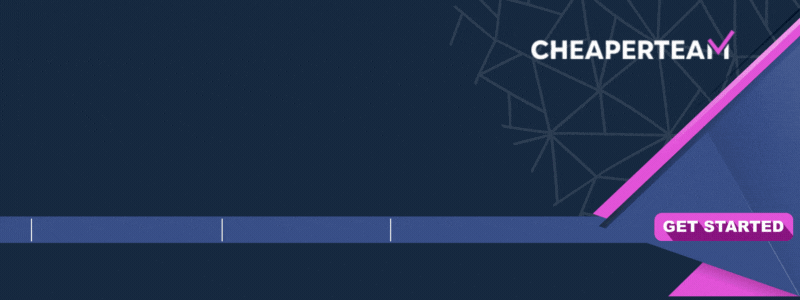In today’s evolving business world, remote work has become the new normal. Teams are no longer confined to office walls; instead, they collaborate across different locations and time zones. While this flexibility offers many benefits, it also introduces new challenges one of the biggest being productivity management.
That’s where time tracking comes in. For remote businesses, time tracking is not just a tool it’s a cornerstone of efficiency, accountability, and transparency.
At CheaperTeam, we know that success in remote environments depends on how well teams manage their time. With clear systems and consistent time tracking, businesses can achieve better results, improved workflows, and stronger team performance.
READ ALSO:
> Outsourcing Virtual Assistant: Streamlining Business Efficiency and Productivity
> 1 Business Outsourcing – 5 Signs Your Business is Ready for Outsourcing
> Why Outsourcing HR Services is Crucial for the Success of Your Business #1
⏱️ Understanding Time Tracking in Remote Work
Time tracking is the process of monitoring how work hours are spent throughout the day. In traditional offices, time management is often visible you see who’s at their desk, in meetings, or taking breaks. In remote environments, however, that visibility can disappear.
By using time tracking tools and systems, companies can monitor productivity levels, identify inefficiencies, and ensure tasks are completed on time.
For teams supported by CheaperTeam, time tracking ensures that every project stays on schedule and clients receive full value for the hours invested.
Time tracking isn’t about micromanagement it’s about creating structure and clarity in a virtual workspace.

📊 Why Time Tracking Matters for Remote Teams
Remote work allows flexibility, but it also demands discipline. Without the right systems, it’s easy for deadlines to slip or hours to be wasted on unproductive tasks.
Here’s why time tracking is crucial in remote environments:
1️⃣ Ensures Accountability
When team members track their time, they develop a sense of ownership over their work. It promotes transparency everyone knows what’s being done and when.
At CheaperTeam, accountability is part of our core culture. Our team members use structured time tracking methods to deliver measurable results for every client.
2️⃣ Improves Productivity
Tracking time helps identify where efforts are going. Teams can analyze how long tasks take, eliminate bottlenecks, and optimize their daily workflows.
For instance, if administrative tasks consume too many hours, they can be reassigned or automated — saving time and increasing efficiency.
3️⃣ Simplifies Project Management
With multiple remote employees and overlapping tasks, project management can get complex. Time tracking helps project managers monitor progress, allocate workloads, and keep teams aligned.
By integrating time tracking with collaboration tools, CheaperTeam ensures that every task stays visible and progress remains measurable.
4️⃣ Helps in Accurate Client Billing
For service-based businesses, accurate billing is vital. Time tracking allows companies to charge clients fairly based on actual hours worked.
At CheaperTeam, we use precise time logs to ensure transparency and trust between clients and remote team members.
5️⃣ Supports Work-Life Balance
When time is tracked effectively, team members can plan their workloads better, avoid burnout, and maintain a healthy balance between personal and professional life.
This is especially important for remote teams, where the line between work and rest can easily blur.
💡 The Key Benefits of Time Tracking in Remote Environments
Time tracking brings more than just organization; it drives long-term business success.
1️⃣ Better Visibility and Transparency
In remote settings, it’s important for managers to have a clear picture of who’s doing what. Time tracking provides visibility into daily tasks, helping identify where improvements can be made.
CheaperTeam uses this approach to build trust and transparency between team members and clients — ensuring everyone is informed and aligned.
2️⃣ Data-Driven Decision Making
Tracking time provides valuable data on performance patterns. Managers can analyze this data to make informed decisions about staffing, project timelines, and task prioritization.
It helps businesses identify high-performing areas and address challenges quickly.
3️⃣ Streamlined Resource Allocation
With time data, managers can see which projects require more attention or resources. This ensures the right people are assigned to the right tasks maximizing productivity and reducing downtime.
4️⃣ Consistent Performance Evaluation
Evaluating employee performance becomes easier when time tracking is in place. It allows fair and objective reviews based on real data, not assumptions.
This motivates remote team members to stay productive, knowing that their work is accurately recognized.
5️⃣ Improved Communication and Planning
Time tracking promotes better communication within remote teams. Managers can plan meetings, allocate deadlines, and forecast workloads effectively when they have access to time-based insights.
🛠️ How to Implement Time Tracking Effectively
While time tracking has clear advantages, it must be implemented thoughtfully to ensure team cooperation and accuracy.
Here’s how businesses can apply it successfully:
1️⃣ Choose the Right Tools
Select time tracking tools that integrate with your project management systems. Platforms like Clockify, Hubstaff, or Toggl make it easy to track time and analyze data in real time.
At CheaperTeam, we use trusted time tracking systems that combine simplicity with robust reporting features ensuring accuracy and efficiency.
2️⃣ Set Clear Expectations
Explain why time tracking is important and how it benefits both the business and the team. When everyone understands its purpose, they’re more likely to embrace it.
Transparency builds trust and prevents misconceptions about monitoring.
3️⃣ Keep It Simple and Consistent
Avoid overcomplicating the process. Encourage daily time tracking habits to ensure data accuracy. Consistency is key to gaining reliable insights.
4️⃣ Review and Optimize Regularly
Use time tracking reports to analyze productivity trends. Identify time-draining tasks and find solutions to streamline them.
📈 Time Tracking as a Tool for Continuous Improvement
Time tracking doesn’t just measure hours it helps businesses grow smarter. By understanding how time is spent, companies can continuously improve performance.
When implemented properly, it becomes a foundation for:
- Setting realistic deadlines
- Avoiding project delays
- Managing remote teams effectively
- Boosting morale through clear expectations
🌐 Time Tracking and Company Culture
A strong company culture thrives on trust, communication, and structure. In remote environments, time tracking reinforces these values.
It creates a sense of shared responsibility each team member contributes to a collective goal and knows their efforts are being recognized.
By combining flexibility with accountability, businesses can build stronger, more cohesive remote teams.
CheaperTeam prioritizes this balance by using time tracking as a way to empower employees rather than control them. It ensures transparency while giving remote professionals the autonomy to manage their time effectively.
🚀 Why CheaperTeam Promotes Time Tracking for Remote Success
At CheaperTeam, we believe in working smarter, not harder. Our outsourcing solutions are built around systems that enhance productivity, communication, and performance.
We integrate time tracking into every remote workflow to ensure:
- Transparency between clients and team members
- Clear insight into project progress
- Efficient use of resources
- Accurate billing and reporting
- Continuous improvement based on performance metrics
By combining expert virtual assistants with structured time management tools, we help businesses run smoothly and efficiently no matter where their teams are located.
💬 FAQs About Time Tracking in Remote Environments
1: Why is time tracking essential for remote teams?
Time tracking helps maintain accountability, productivity, and transparency in remote environments where direct supervision isn’t possible.
2: Does time tracking reduce employee flexibility?
No. When implemented correctly, time tracking supports flexibility while ensuring work remains structured and measurable.
3: What’s the best way to introduce time tracking to a remote team?
Communicate openly about its purpose, choose user-friendly tools, and emphasize how it benefits both the business and employees.
4: Can time tracking improve team performance?
Yes. By identifying inefficiencies and optimizing work schedules, time tracking helps teams work more effectively and achieve better results.
5: How does CheaperTeam use time tracking in its operations?
CheaperTeam uses reliable systems to monitor progress, enhance accountability, and deliver measurable results all while maintaining transparency with clients and remote staff.
CheaperTeam is a European based outsourcing company with headquarters centrally located in the heart of Manhattan, NY. Our objective is to provide high-quality, motivated employees while maintaining cost efficiency for businesses. We offer a boutique style of doing business, allowing flexibility in vetting and sourcing employees for various industries. Our staff comprises data entry specialists, medical billers, interior designers, back-office employees, and virtually any position that can be executed remotely.



